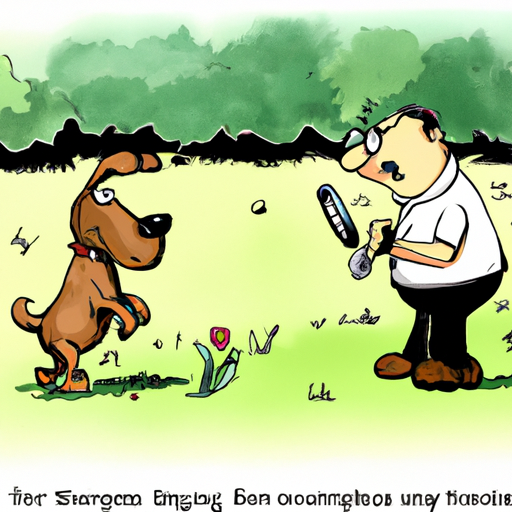Understanding the Canine Sense of Smell
Dogs have an incredibly advanced sense of smell. In fact, their olfactory senses are between 10,000 to 100,000 times more sensitive than ours. So, it’s no surprise that they use their noses to explore the world around them. When your pup sniffs you, they’re not just smelling your perfume or laundry detergent. They’re picking up on a whole world of scents that you can’t even detect.
The Importance of Scent in Dog Communication
Just as humans use language to communicate, dogs use scents. When a dog sniffs you, they’re gathering information about you. They can pick up on your emotions, diet, and even your health. In many ways, your scent is your dog’s way of getting to know you better.
- Emotions: Dogs can smell chemical changes in your body that can indicate your emotions. For example, they can detect increased adrenaline levels when you’re stressed or excited.
- Diet: Your diet changes your body’s natural odors. Dogs can pick up on these changes and may even react differently to you based on what you’ve eaten.
- Health: Some dogs can detect certain diseases or health conditions by smell. For instance, some service dogs are trained to alert their owners when they detect the scent of low blood sugar.
The Bonding Power of Sniffing
When your dog sniffs you, they’re not just gathering information. They’re also bonding with you. In the wild, dogs sniff each other as a form of social interaction. By sniffing you, your dog is making a social connection and reinforcing their bond with you.
Why Dogs Sniff Certain Areas More Than Others
You might have noticed that your dog tends to sniff certain areas more than others. This is because these areas – such as your hands or crotch – carry more scent-producing glands. Don’t be embarrassed by your dog’s sniffing habits; it’s a natural and important part of their behavior.
Dealing with Excessive Sniffing
While sniffing is a normal and healthy behavior, excessive sniffing can sometimes be a sign of anxiety or other behavioral issues. If your dog’s sniffing habits are causing problems, there are steps you can take to address the issue:
- Encourage your dog to engage in other activities, like play or training.
- Use positive reinforcement to reward your dog for not sniffing.
- Consult with a professional dog trainer or behaviorist if the problem persists.
Frequently Asked Questions (FAQs)
1. Why does my dog sniff my friends more than me?
Your dog already knows your scent well. They sniff your friends to get to know them, just like they did with you.
2. Is it okay to let my dog sniff other dogs?
Yes, sniffing is an important part of dog-to-dog communication. However, always supervise interactions to ensure they remain friendly.
3. Why does my dog sniff the ground so much on walks?
They’re exploring their environment. Try to allow time for sniffing during walks, as it’s an important mental stimulation for them.
4. Can I train my dog to sniff less?
While you can’t (and shouldn’t) entirely eliminate sniffing, you can train them to focus on other activities. Consult a professional for guidance.
5. Is sniffing a sign of illness in dogs?
Excessive sniffing can sometimes be a sign of anxiety or other issues. If you’re concerned, it’s always best to consult with a vet.



